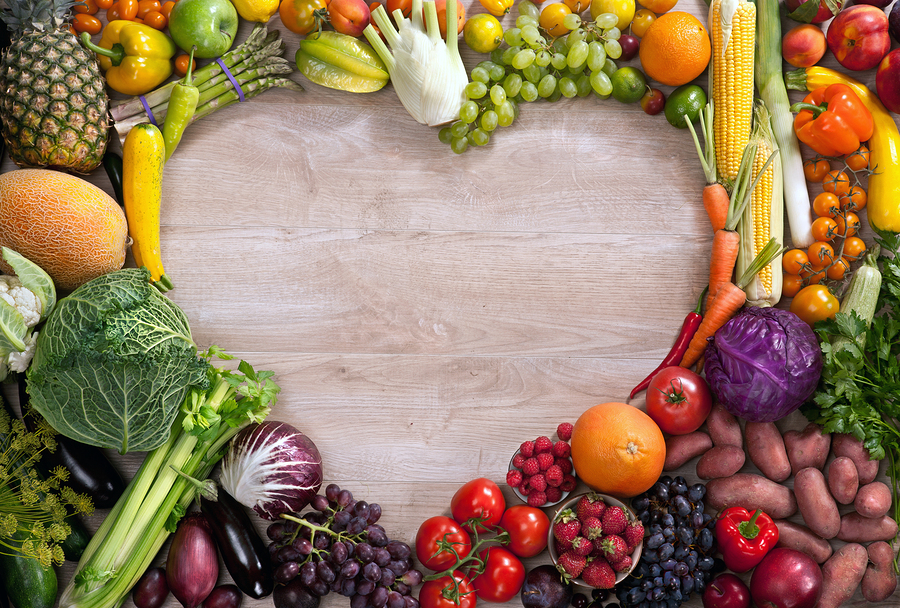Celebrate National Vegetarian Week 2018
It’s National Vegetarian Week; people across the UK are celebrating the benefits of choosing a vegetarian diet and sharing the foods, stories and traditions that impact the way we eat.
Whether you’re considering a lifestyle change, already been eating a vegetarian diet for years, or are a happy meat eater looking for healthy eating ideas, Vegetarian Week offers an opportunity to reflect on the foods we eat everyday.
The Vegetarian Diet
Vegetarians don’t eat any meat, poultry, fish or game, including shellfish and game, and also avoid animal by-products like gelatine.
Instead, they get most of their protein, vitamins and nutrients from fresh fruit and vegetables, pulses, nuts, grains, dairy products and eggs.
Some people who are used to eating meat worry that a vegetarian diet won’t have enough protein in it, but it’s not the case. Most vegetarians get all the protein they need from the likes of cereal, eggs, pulses, beans, nuts, soya products like tofu and soy milk, and meat substitutes like Quorn.
Iron and calcium are also easy to find in a vegetarian diet, through pulses, wholegrains, dried fruit, dark leafy-green vegetables, fortified milk, and cereals. Dairy products like cheese, butter, yoghurt and milk are great sources of both protein and calcium, and healthy when eaten in moderation.
Vegetarian diets tend to include more than the minimum recommended five portions of fruit and vegetables a day, meaning that they take in vital vitamins and minerals, and great amounts of fibre.
Just like any other diet, a vegetarian diet needs to be balanced and not contain too much fatty food or sugar.
Vegetarian Health Benefits
There has been a vast amount of research done over the years into the health benefits of a vegetarian diet, and the long term effects of being vegetarian.
- Cholesterol: Vegetarians often eat less saturated fat (found in sausages, cakes, pies, and dairy) than meat eaters, and replace meat with foods like soya and nuts, which are good at keeping cholesterol at bay.
- Heart Disease: Lower cholesterol levels mean less risk of heart disease
- Blood Pressure: Blood pressure is often lower among vegetarians than meat eaters, helping reduce the chance of heart disease and stroke
- Cancer: Vegetarian diets are often associated with a reduced risk of cancer, particularly stomach, colon and bowel cancers
- Stroke: Research suggests that people who eat more than five portions of fruit and vegetables a day not only have a lower risk of heart disease and some cancers, but are less likely to have strokes too
- Weight: On average, vegetarians have a lower BMI than meat eaters, and are less likely to be overweight
- Diabetes: Lower cholesterol diets, being a healthy weight, having good blood sugar levels and eating low GI carbohydrate foods can all help to avoid or manage type 2 diabetes
Find out more about vegetarian health and nutrition on the Vegetarian Society website.
National Vegetarian Week
This year, the aim of National Vegetarian Week is to get people to share tasty vegetarian food with friends and family, in order to show how delicious, fresh, healthy and environmentally friendly it can be.
To participate, you could host a meal for friends, ask people to share their favourite vegetarian recipes with you, try eating vegetarian options in a restaurant, or share photos of your food with friends on social media.
You can take part and find recipes on the National Vegetarian Week website.
Have you ever been tempted to go vegetarian?
Rachel - Silversurfers Assistant Editor
Latest posts by Rachel - Silversurfers Assistant Editor (see all)
- Easter activities for grandchildren - March 31, 2025
- Songs about Mum for Mothering Sunday - March 26, 2025
- The best of Diana Ross - March 25, 2025
- Elton John’s Greatest Hits Playlist - March 24, 2025
- Find love with Silversurfers Dating - March 20, 2025




















